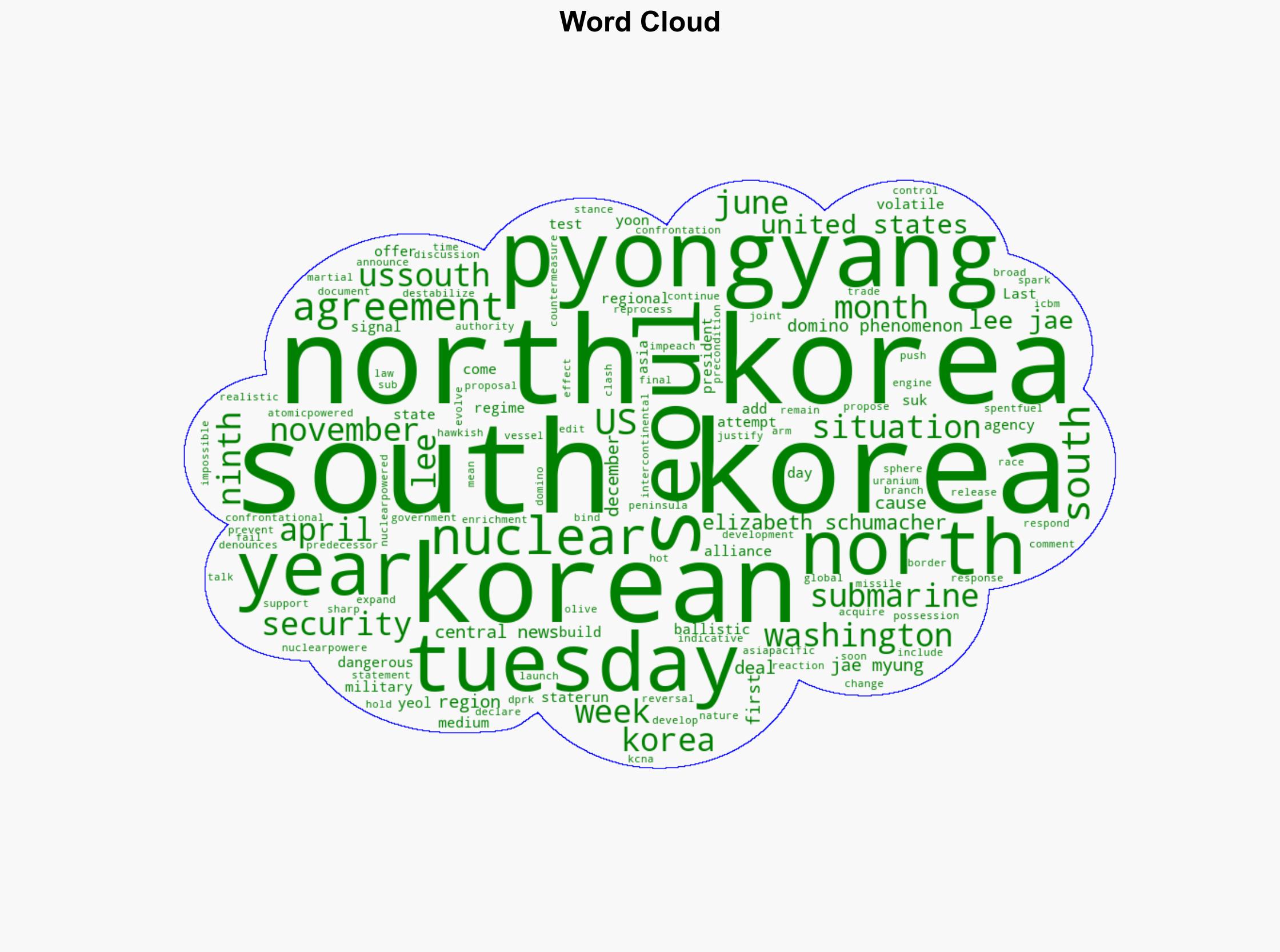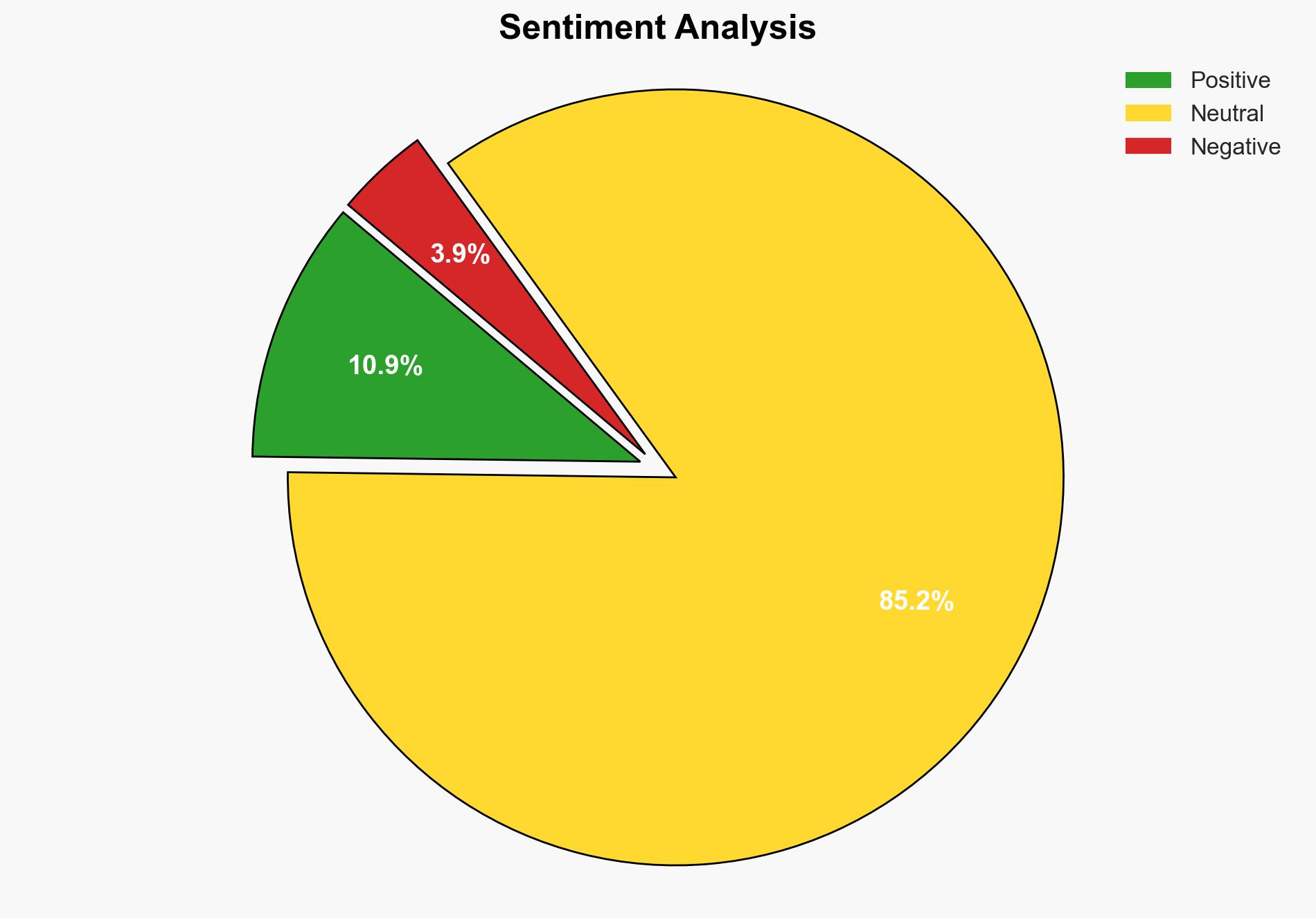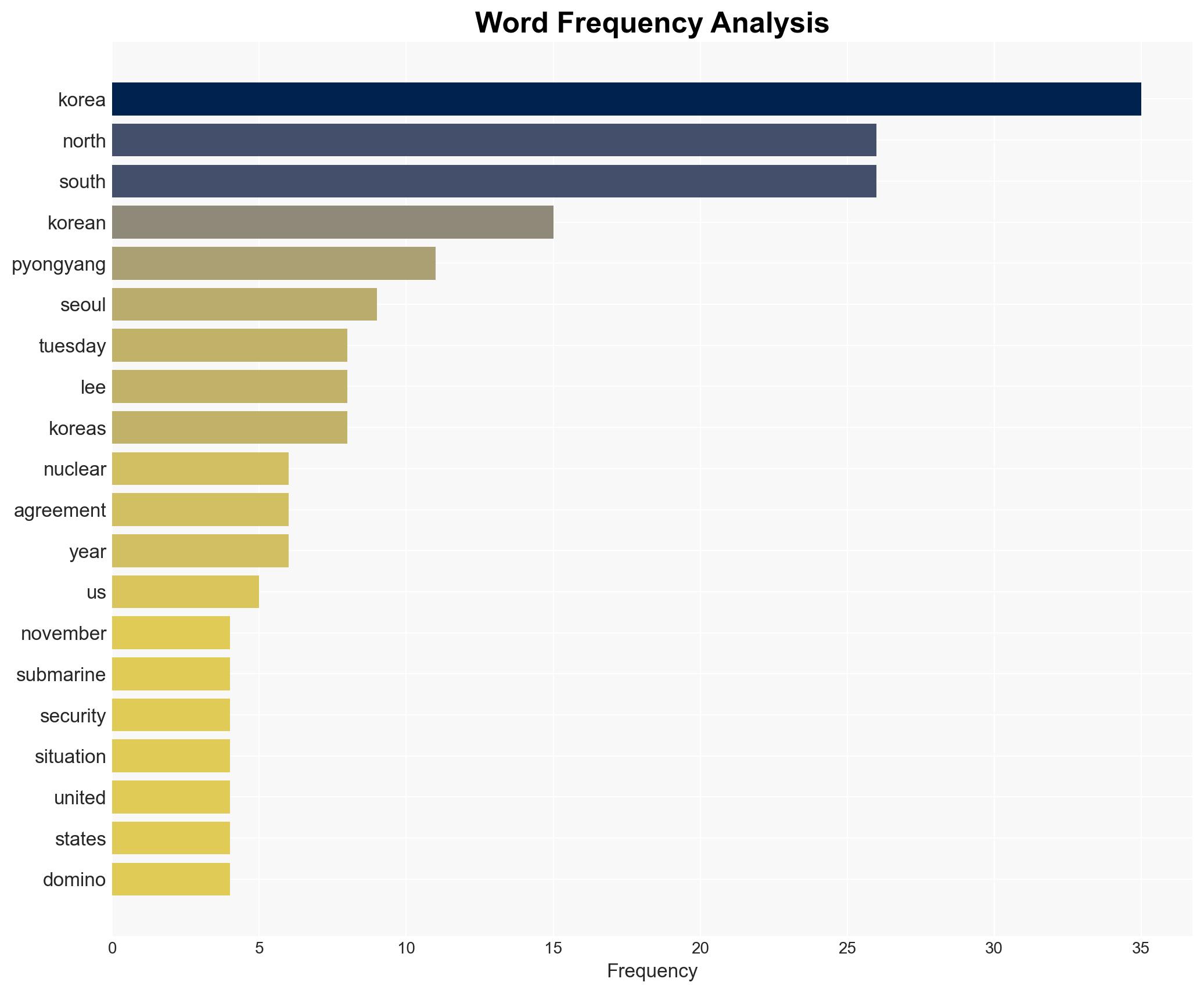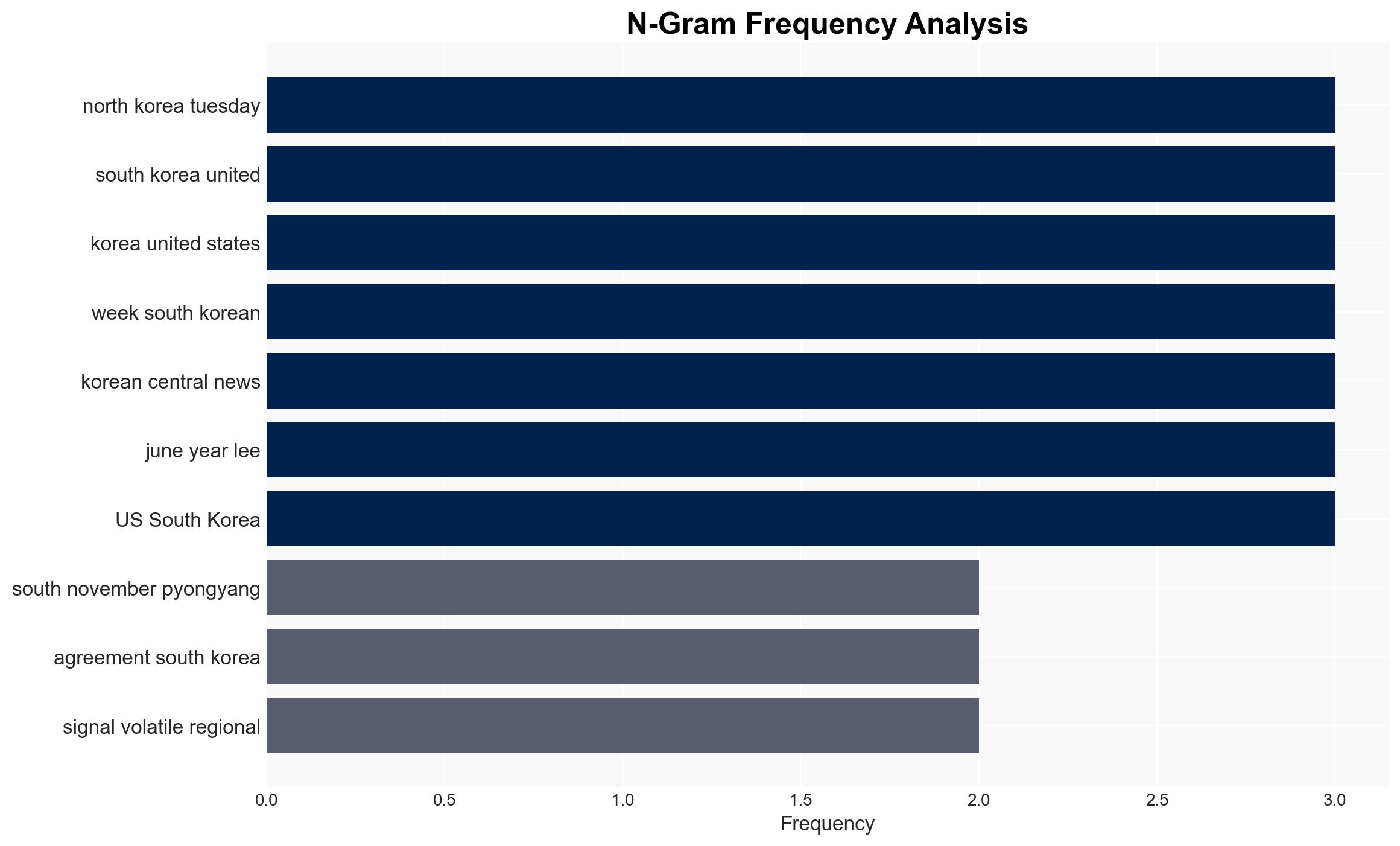North Korea denounces nuclear agreement between South and US – DW (English)
Published on: 2025-11-18
AI-powered OSINT brief from verified open sources. Automated NLP signal extraction with human verification. See our Methodology and Why WorldWideWatchers.
Intelligence Report: North Korea’s Denunciation of South Korea-US Nuclear Agreement
1. BLUF (Bottom Line Up Front)
The denunciation by North Korea of the South Korea-US nuclear agreement is primarily a strategic maneuver to justify its own military advancements and to exert pressure on the regional security dynamics. The most supported hypothesis is that North Korea is leveraging this situation to reinforce its narrative of external threats to justify its military buildup. Confidence Level: Moderate. Recommended action includes diplomatic engagement with regional stakeholders to de-escalate tensions and reinforce non-proliferation norms.
2. Competing Hypotheses
Hypothesis 1: North Korea’s denunciation is a genuine expression of security concerns over the perceived threat posed by the South Korea-US nuclear agreement. This hypothesis suggests that North Korea views the development of a nuclear-powered submarine by South Korea as a direct threat to its national security, prompting a defensive posture.
Hypothesis 2: North Korea’s response is a strategic move to justify its own military advancements and to maintain internal cohesion by portraying external threats. This hypothesis posits that North Korea is using the agreement as a pretext to further its military capabilities and to rally domestic support by emphasizing the threat from the US-South Korea alliance.
The second hypothesis is more likely given North Korea’s historical pattern of using external threats to justify military developments and its recent missile tests.
3. Key Assumptions and Red Flags
Assumptions: It is assumed that North Korea’s public statements are primarily for domestic and regional strategic purposes. The assumption that South Korea’s nuclear submarine development is purely defensive could be challenged by regional actors.
Red Flags: North Korea’s accelerated missile tests and military developments could indicate preparation for further provocations. The timing of North Korea’s denunciation closely following South Korea’s proposal for military talks suggests a potential strategic deception to undermine diplomatic efforts.
4. Implications and Strategic Risks
The denunciation could exacerbate regional tensions, leading to an arms race in the Asia-Pacific. Politically, it may hinder diplomatic efforts between the Koreas and involve other regional powers. Economically, increased military spending could strain national budgets. Informationally, North Korea may use this narrative to bolster its propaganda efforts.
5. Recommendations and Outlook
- Engage in multilateral diplomatic efforts to address security concerns and reinforce non-proliferation norms.
- Enhance intelligence-sharing with regional allies to monitor North Korea’s military developments.
- Best-case scenario: Diplomatic engagement leads to de-escalation and resumption of inter-Korean talks.
- Worst-case scenario: An arms race ensues, destabilizing the region and increasing the risk of conflict.
- Most-likely scenario: Continued rhetorical exchanges with periodic military demonstrations by North Korea.
6. Key Individuals and Entities
Lee Jae Myung (South Korean President), Yoon Suk Yeol (Former South Korean President), North Korean leadership (Kim Jong-un).
7. Thematic Tags
Regional Focus, Regional Focus: Korean Peninsula, Asia-Pacific Security, Nuclear Non-Proliferation
Structured Analytic Techniques Applied
- Causal Layered Analysis (CLA): Analyze events across surface happenings, systems, worldviews, and myths.
- Cross-Impact Simulation: Model ripple effects across neighboring states, conflicts, or economic dependencies.
- Scenario Generation: Explore divergent futures under varying assumptions to identify plausible paths.
Explore more:
Regional Focus Briefs ·
Daily Summary ·
Support us





